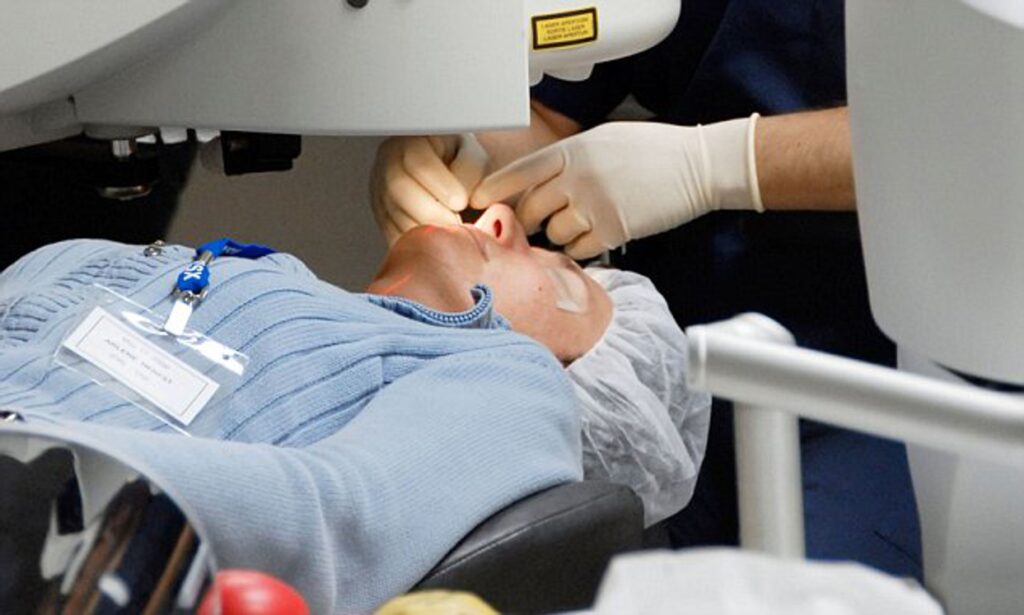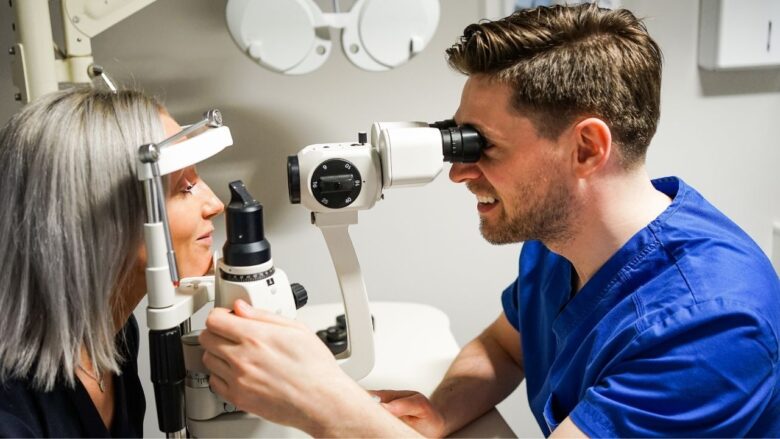Imagine waking up every day to a world that looks like it’s been dipped in fog. Faces blur, reading becomes a chore, and colors lose their spark. This is daily life for millions living with cataracts — a slow clouding of the eye’s natural lens that makes the world feel distant and dim.
If you or a loved one are facing this journey, it’s normal to feel nervous. But here’s the truth: cataract surgery is one of the safest and most effective procedures performed today — and for many, it’s truly life-changing.
Let’s walk through what cataract surgery really feels like — before, during, and after — so you can face it with clarity and confidence.
What Are Cataracts, Really?
Think of your eye like a camera. Light enters through the lens and focuses on the back of your eye to create a clear image. Cataracts are like a smudge on that lens — one that keeps growing over time.
They’re not painful, but they’re frustrating. You may find yourself squinting more often, needing brighter lights to read, or avoiding night driving altogether. It’s like looking through a dirty window you just can’t clean.
The good news? Cataract surgery replaces that cloudy lens with a clear artificial one — giving you a fresh window to the world.
Before the Surgery: What to Expect
The first step is a consultation with an eye specialist. This visit includes a series of painless eye tests to check your vision, measure your eyes, and determine the best type of lens for you.
It’s completely normal to feel anxious at this stage. Many patients worry about the idea of eye surgery. But once we explain that it’s quick, virtually painless, and done every day around the world with amazing success, most people begin to relax.
We often hear questions like:
- “Will I be awake during surgery?” (Yes, but you won’t feel pain.)
- “Will I see the instruments?” (You’ll see light and movement, but not the details.)
- “How long does it take?” (Just 15 to 30 minutes per eye.)
We always encourage patients to bring a loved one to the appointment — not only for support but also to help remember the information and instructions.
The Day of Surgery: A Gentle Process
Cataract surgery day feels more like a quick doctor’s visit than a hospital stay. You’ll arrive at the surgical center, check in, and get prepped by the medical team. This includes numbing eye drops, perhaps a mild sedative, and final checks.
You’ll lie down in a comfortable position, and we’ll ensure you’re relaxed and calm. Most people don’t feel any discomfort during the procedure. At most, you may feel some coolness from the instruments or a bit of pressure — but no pain.
Using advanced laser or ultrasound technology, the cloudy lens is gently broken up and removed. A new artificial lens is then inserted — one that stays in your eye permanently and restores your vision.
It’s so quick and smooth that many patients say, “That was it?”

The Moment After: Seeing the World Again
After surgery, your eye will be covered with a protective shield or patch, and you’ll rest briefly before heading home. You won’t be allowed to drive, so make sure someone is there with you.
Within just a few hours, many patients begin to notice changes. Some describe the moment as emotional — colors appear brighter, details sharper, and that persistent blur is finally gone. Others compare it to upgrading from an old, foggy camera lens to a brand-new HD one.
While it can take a few days for vision to fully stabilize, the difference is often noticeable from day one.
Recovery: The First Few Days to Weeks
Healing from cataract surgery is typically smooth and straightforward. You’ll be prescribed special eye drops to prevent infection and reduce inflammation, and you’ll return for follow-up visits to monitor your progress.
Here’s what to expect:
- No driving for the first day or two (until your doctor clears it).
- No rubbing your eyes (it’s harder than it sounds!).
- No heavy lifting or swimming for a week or so.
Most patients are back to normal activities within a few days. Any mild irritation, light sensitivity, or blurry patches tend to fade quickly.
And the best part? No more glasses for most everyday activities. Some people still need readers, but even that’s often minimized with certain lens types.
Emotional Transformation: From Foggy to Free
Beyond the vision benefits, cataract surgery often brings something deeper: emotional relief.
Think about it. The frustration of struggling to read, the fear of falling due to poor depth perception, the embarrassment of constantly asking people to repeat themselves — all of that fades away.
We’ve seen patients tear up during follow-ups, saying they hadn’t realized how much they were missing. One woman shared how she could finally see her grandchildren’s smiles clearly again. Another told us he returned to painting after years of giving it up.
You’re not just getting clear sight. You’re getting back moments that matter.
Is Cataract Surgery Right for You?
Most people develop cataracts as they age — it’s a natural part of getting older. But that doesn’t mean you have to live with them.
If your vision is interfering with daily life, reading, driving, or hobbies, it might be time to consider surgery. The ideal candidates are generally in good health and have no major eye diseases.
Even if you’re nervous, talking to a specialist can help. They’ll answer your questions, check your eyes, and guide you through the process at your pace.
Final Thoughts: Your Journey to Clear Vision Starts Here
Living with cataracts can feel like watching life through a fogged-up window. But cataract surgery offers a safe, fast, and transformative way to clean that window — and see your world in full color again.
If you or a loved one are considering it, know this: you’re not alone. Millions have gone through the same doubts, asked the same questions, and walked out of surgery feeling amazed.
And the first step? A simple conversation with someone who cares about your eyes — and your life beyond them.
Clear vision isn’t just about sight. It’s about freedom, confidence, and joy. And it’s closer than you think.




